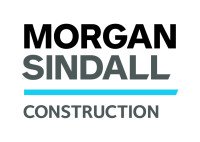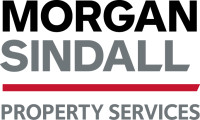Part of the Morgan Sindall Group, Lovell has ambitious sustainability targets, including achieving net zero carbon by 2030. The company is already well on the way to making a difference in the way it operates and in the homes it sells.
Lovell is an early adopter of the Future Homes Standard – a set of government standards to ensure new homes built from 2025 will produce 75-80% less carbon emissions – with many of its houses already meeting some of the requirements. Among these standards which will deliver additional eco benefits for homeowners is the installation of air source heat pumps. These provide renewable heating and hot water for homes, with installations completed on two of Lovell Homes open market developments in Gislingham and Walsham-le-Willows, and further installations on new sites planned for 2022. Solar PV is also being fitted on some developments.
Simon Medler, regional managing director of Lovell in East Anglia, said: “We are finding that buyers are increasingly looking for environmentally friendly features in new properties. There is less call for the cheapest option, with people expecting us, as housebuilders, to be building in energy saving features as standard, like heat pumps. Lovell is driven by a commitment to building better futures, changing lives and leaving a lasting legacy wherever we work.”
As a business, Lovell has achieved a 62% reduction in its overall carbon dioxide equivalent emissions over the last ten years through initiatives such as reducing waste, improving energy efficiency in its offices and the introduction of electric company cars. Having trialled a reduced carbon fuel on-site in 2019, Lovell has also now moved to hydrogenated vegetable oil (HVO). This entirely renewable fuel source produces 90% less emissions than diesel. Red diesel is no longer being ordered, with the business expecting fuel consumption for existing generators and telehandlers to be entirely HVO by the end of 2021.
Lovell is one of the first housebuilders to use iHouse – high quality, eco-friendly homes that can be erected and made waterproof in just five days, achieving a 35% time saving when compared to traditional building methods. The iHouse is currently being rolled out across a number of Lovell sites in the region. Waste and dust generated on-site by the erection of iHouse properties are also significantly reduced.
The company is focusing on supporting nature at grass roots levels too, with the likes of bee bricks to provide a habitat for solitary bees at some of its sites, sponsorship of community projects such as Wild Woods and implementing geo-grow vegetated soil retaining walls, which will further contribute to local ecology and biodiversity.
On a national level, Lovell is also trialling a number of other green initiatives across the UK including an electric JCB and concrete bricks which produce lower CO2 emissions than traditional brick. Earlier this year, the Group launched CarboniCa – a carbon calculator to help visualise, track and measure the whole-life emissions of a project and to support lower-carbon decision making.
But it’s not just Lovell making changes, the company is also insisting its supply chain follows suit. Simon explains: “We are working hard with our suppliers and contractors to share ideas. We attended Morgan Sindall’s recent Meeting the Challenge supply chain event, which saw 800 new and existing suppliers coming together to look at new greener methods and materials. We’re all in this together and by working together we can achieve our targets and deliver homes which are in line with our responsibilities as a green business and that our customers expect.”
With demand for Lovell properties soaring this year, the business is determined to continue leading the way with its green strategy and high quality homes.
Lovell is part of the Morgan Sindall Group plc, a leading UK construction and regeneration group. In 2020, Morgan Sindall was one of 270 companies internationally to be given an A-class rating by CDP (formerly the Carbon Disclosure Project), out of the 5,800 who applied. CDP is an independent and voluntary carbon reporting scheme which assesses how companies cut emissions, mitigate climate risks and develop low-carbon alternatives.





